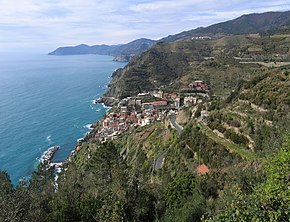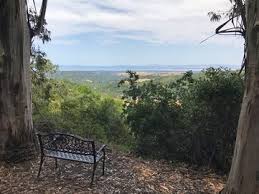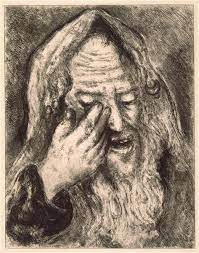

My Heart Christ's Home and the Beast in the Basement
![]()
John 14
‘Do not let your hearts be troubled. Believe in God, believe also in me. In my Father’s house there are many dwelling-places. If it were not so, would I have told you that I go to prepare a place for you? And if I go and prepare a place for you, I will come again and will take you to myself, so that where I am, there you may be also. And you know the way to the place where I am going.’ Thomas said to him, ‘Lord, we do not know where you are going. How can we know the way?’ Jesus said to him, ‘I am the way, and the truth, and the life. No one comes to the Father except through me. If you know me, you will know my Father also. From now on you do know him and have seen him.’ Philip said to him, ‘Lord, show us the Father, and we will be satisfied.’Jesus said to him, ‘Have I been with you all this time, Philip, and you still do not know me? Whoever has seen me has seen the Father. How can you say, “Show us the Father”? Do you not believe that I am in the Father and the Father is in me? The words that I say to you I do not speak on my own; but the Father who dwells in me does his works. Believe me that I am in the Father and the Father is in me; but if you do not, then believe me because of the works themselves. Very truly, I tell you, the one who believes in me will also do the works that I do and, in fact, will do greater works than these, because I am going to the Father. I will do whatever you ask in my name, so that the Father may be glorified in the Son. If in my name you ask me for anything, I will do it. ‘If you love me, you will keep my commandments. And I will ask the Father, and he will give you another Advocate, to be with you for ever. This is the Spirit of truth, whom the world cannot receive, because it neither sees him nor knows him. You know him, because he abides with you, and he will be in you. ‘I will not leave you orphaned; I am coming to you. In a little while the world will no longer see me, but you will see me; because I live, you also will live. On that day you will know that I am in my Father, and you in me, and I in you. They who have my commandments and keep them are those who love me; and those who love me will be loved by my Father, and I will love them and reveal myself to them.’ Judas (not Iscariot) said to him, ‘Lord, how is it that you will reveal yourself to us, and not to the world?’ Jesus answered him, ‘Those who love me will keep my word, and my Father will love them, and we will come to them and make our home with them. Whoever does not love me does not keep my words; and the word that you hear is not mine, but is from the Father who sent me. ‘I have said these things to you while I am still with you. But the Advocate, the Holy Spirit, whom the Father will send in my name, will teach you everything, and remind you of all that I have said to you. Peace I leave with you; my peace I give to you. I do not give to you as the world gives. Do not let your hearts be troubled, and do not let them be afraid. You heard me say to you, “I am going away, and I am coming to you.” If you loved me, you would rejoice that I am going to the Father, because the Father is greater than I. And now I have told you this before it occurs, so that when it does occur, you may believe. I will no longer talk much with you, for the ruler of this world is coming. He has no power over me; but I do as the Father has commanded me, so that the world may know that I love the Father. Rise, let us be on our way.
|
![]()
From Ray Stedman
I am fascinated by the discourse of Jesus in the Upper Room. There are truths here that simply stagger the imagination. Surely this is one of the greatest revelations ever to fall from the lips of Jesus. The Gospel of Matthew records that, early in his ministry, our Lord said, "I have come that I might utter things that have been kept secret since the foundation of the world." Surely some of these truths are found here in the Upper Room Discourse. Take Verse 1, for instance:
"Let not your hearts be troubled; believe in God, believe also in me." (John 14:1 RSV)
That verse could well be called a Manual for Stress Management, a remedy for anxious and troubled hearts. Here is where we find the answer to the question, "How do you spell relief?"
Notice that the verse comes right after Jesus' revelation to Peter that he is about to deny his Lord. This came as a shock to Peter. He did not believe he was capable of such a thing. Yet these words about troubled hearts are not addressed to him alone. The plural is used for "your" here: "Let not your hearts be troubled" includes all the disciples.
We can understand why they would be greatly troubled. They were aware of the mounting peril to Jesus, and that the priests and the rulers of the Jews were out to put him to death. Also, they were no doubt ashamed of their own behavior at the Last Supper, arguing about who was the greatest till the Lord rebuked them by washing their feet, much to their shame and embarrassment. Then they were uneasy when he declared that one of them was going to betray him. They were confused and puzzled by the sudden exodus of Judas from their midst. Most of all, they were afraid of losing Jesus. They were troubled by his words that he was about to take his departure, that they would look for him but would see him no more. Anxious foreboding filled their minds. The cold clutch of fear gripped their hearts.
Since we are also disciples of Jesus, and can rightly include ourselves in words like this, we must ask ourselves, "Is it wrong for Christians to be troubled like this? Are we expected never to succumb to moments of pressure, or to feel anxious and worried? Are we supposed to be cheerful and confident all the time?" Many Christians think this is what this verse means. But they forget that Jesus himself was not immune to this kind of reaction to pressure. Three times in the chapters before this John, using the same word on those occasions as he has here, records that Jesus was "deeply troubled in spirit." Thus it is clear that we may expect to feel troubled at times. Christians are exposed to pressure and danger. We have the record of the epistles to confirm this. The apostles went through times of great peril, during which they feared and trembled. Thus it is not wrong for Christians to feel pressured and fearful. What this is teaching, and what our Lord means by, "Let not your hearts be troubled," is that, while we cannot prevent stress, we can overcome it. This is where this passage has much rich meaning for us.
Jesus suggests two things in this verse: First, he tells the disciples, "Believe in God, believe also in me." In this version both of those words "believe" are in the imperative mood, i.e., they are commands. There is some question among the commentators as to whether these should be indicative statements: "You do believe in God; you do believe in me," or whether they are commands, as rendered here. The Greek text will bear either rendering. The best way to take it, in line with the context, is, "You do believe in God; believe also in me."
What Jesus means is, "You have found relief for worry many times in the promises of God." They had the Old Testament, with its rich heritage of wonderful promises, and they had found strength and help from those passages in times of pressure. But now he gives them new truth which goes beyond anything in the Old Testament. "I want you to believe this too," he tells them. "You have believed in God; now believe in me."
Here Jesus obviously moves himself onto a plane of equality with the Father, speaking not only as a man but also as God. He begins to reveal to them the things that had been kept secret since the foundation of the world. One of those new things is found in the next two verses:
"In my Father's house are many rooms; if it were not so, would I have told you that I go to prepare a place for you?" (John 14:2 RSV)
Some versions render this, "If it were not so, I would have told you, for I go to prepare a place for you." It is somewhat difficult to know which it should be, but, in the long run, it does not really make any difference. In both cases Jesus is saying, "If you had thought something to be true that was not true, I would have pointed that out to you." In other words. "I have come to correct the erroneous concepts, the false thinking that you may have held. I want you to understand that in my Father's house there are many rooms."
All of this is new truth, truth we do not find in the Old Testament. We must ask, "What is the Father's house?" Most of us take this to mean heaven, for heaven is usually viewed as the place where God dwells, but "heaven" is a very vague term. If we let Scripture interpret Scripture (as good expositors should) we would perhaps refer to a passage in the last chapter of Isaiah, where God says, "Heaven is my throne and earth is my footstool," (Isaiah 66:1). This implication is clear that God dwells in the entire universe; that this vast cosmos, of which we are but a tiny part, is the Father's house. "In it," Jesus declares, "are many rooms." The word in Greek for "rooms" really means 'a place to live.' This word appears but twice in the New Testament, here and in Verse 23 of this same chapter. In that verse Jesus says, "If a man loves me, he will keep my word, and my Father will love him, and we will come to him and make our home with him."
What Jesus therefore is saying is, "In my Father's house there are many homes, many places to live." Through the kindness of a Christian friend, my wife and I were invited to spend three days last week at a beautiful resort near the city of Mendocino in Northern California. It is called Heritage House. But Heritage House is far more than a house. It is a collection of apartments, nestled along the cliffs overlooking the beautiful surf, altogether a marvelous place. It is quite proper, therefore, to say, "At Heritage House there are many places to live." That is what our Lord seems to describe here.
As we contemplate the vastness of the universe we are astounded at the immensity of it. Our own galaxy is some 300,000 light years across, and there are millions and even billions of such galaxies, stretching out into space and rushing further apart all the time. As he gazes into the heavens, Jesus says, "In my Father's house, the place where God dwells, 'the heavens and the heaven of heavens,' there are many places to live."
I have long taken that to be a revelation that there are other inhabitable planets in our universe, where intelligent creatures dwell. Our Lord's suggestion here opens up whole new vistas of imagination to us. Since I was a boy in high school I have been intrigued by the great 200-inch telescope at Mount Palomar in Southern California, the largest telescope man has ever made. (They are beginning to build another one now that will be even larger.) I have always read everything I could about the discoveries of that telescope because I envisaged it as being poked right into the front window of the Father's house! It has shown us some amazing things. Now, of course, we have launched satellites that have gone clear out into space and even circled some of the other planets of our solar system. It is truly awesome to contemplate what is suggested in this verse.
But, whatever it means, our Lord wants his disciples to understand three very comforting things: First, he tells them.
"...if I go...I will come again," (John 14:3a KJV)
This word is clearly designed to help them in their fear, primarily their fear of death. What would become of Jesus if he died? Would they ever see him again? What would become of them if all this turmoil in Jerusalem should eventuate in their own death? The thought of death has a very sobering effect upon us. I think it was Samuel Johnson who said, "The prospect of immediate hanging marvelously clears the mind!"
Here our Lord gives three comforting facts about death. First, he is going to prepare a place. We do not know where. I personally believe that this involves not so much the rearrangement of part of the universe for our reception, but that it involves primarily the preparing of us for a whole new dimension of existence. That is suggested in other passages. In the writings of Paul, for instance, the apostle says that what happens to us here, "This light affliction," as he puts it, "is working for us a far more and exceeding weight of glory," (2 Corinthians 4:17). I do not know what that means either, but it blows my mind as to its possibility. What our Lord may be doing is working out a whole new dimension of existence for us, and, when it is ready (or we are ready), he will return.
The second fact he states is, "I will come again." Surely this refers to many other passages where he spoke of his return. Just a few days before this event he had sat on the Mount of Olives and talked about a time when the Son of Man would appear in glory, with all his angels with him: and the peoples of the earth would be gathered before him. etc. Now he relates it directly to these disciples:
"I will come again and will take you to myself, that where I am you may be also." (John 14:3b RSV)
Those are very comforting words. Paul enlarges on this in First Thessalonians:
"The Lord himself will descend from heaven with a cry of command [He will not send an angel, he will come himself], with the archangel's call, and with the sound of the trumpet of God. And the dead in Christ will rise first, then we who are alive, who are left, shall be caught up together with them in the clouds to meet the Lord in the air: and so we shall always be with the Lord." (1 Thessalonians 4:16 RSV)
That is a marvelous promise of an event that is yet to come into human history. You can buy a wheelbarrow full of books that will tell you the exact date of this event -- all of them different. But no one knows the exact date.
Yet through twenty centuries of Christianity this verse in John 14 has also been used to encourage believers to expect the Lord's coming when they die. Upon death, every believer is received into glory by Jesus. As Stephen was being stoned to death he said, "I see the Lord Jesus standing at the right hand of the throne of God," (Acts 7:55-56). (Some have suggested that Jesus had risen to welcome him home.)
I believe this indicates that these two events (the second coming of Jesus back into time to carry out his announced prophetic program, and the coming of the Lord personally for each believer upon death), are really one and the same. Other passages suggest this. It is very likely that when we step out of time, we step into eternity, and in eternity there is no waiting for anything. What you are spiritually ready for is what occurs. The event for which the Spirit of God is now getting us ready, throughout this earthly journey, is the coming of the Lord for his own. When we breathe our last, every true believer finds himself at this great world-shaking event when all believers are caught up together, and enter into glory at once. You may find some implications of that disturbing. If you want further information on it, I would like to suggest a chapter in my book, Authentic Christianity, called Time and Eternity.
The third comforting thing here is that we will be with Jesus forever. Just to be with Jesus -- that is all we need, that is what we want.
When I was a young Christian we used to sing a hymn that I never hear any more. The words went something like this:
No matter where on earth we dwell.
On mountain top or in the dell.
In cottage or in mansion fair.
Where Jesus is 'tis heaven there.Oh, hallelujah! Yes 'tis heaven.
'Tis heaven to know my sins forgiven.
On land or sea, no matter where.
Where Jesus is 'tis heaven there.
Surely that is what makes heaven heaven. As one commentator has said, "You don't go to heaven to find Christ. You go to Christ to find heaven." This is what Jesus declares to reassure his disciples here.
In Verses 4-11, our Lord goes even further. Here he adds more marvelous but mysterious things, gathered around two interruptions by the disciples Thomas and Philip. Both of them are as bewildered and confused as most of us are when we first read this passage. Thomas is the first who interrupts, in response to the words of Jesus in Verse 4:
And you know the way where I am going. Thomas said to him, "Lord, we do not know where you are going; how can we know the way?" Jesus said to him, "I am the way, and the truth, and the life; no one comes to the Father, but by me. If you had known me, you would have known my Father also; henceforth you [do] know him and have seen him." (John 14:4-7 RSV)
"Doubting Thomas" he has been called. I don't think that is a good name for him. It should perhaps be, "Honest Thomas." I believe Thomas is the type of person who will not say he understands something until he really does.
I read once a story of Cordell Hull, the great Secretary of State under Franklin Roosevelt. He was riding in a train one day, with a companion, through the New England states. Observing a flock of sheep feeding on a hillside his companion idly remarked, "Those sheep have recently been sheared." Cordell Hull stared at them a moment and said, "Well, sheared on this side anyway!" Thomas was that kind of a man. He would go no further than what he understood.
And Jesus does not rebuke him. He simply replies with the greatest revelation about himself that we have had in the Gospel of John. "I am the way, and the truth, and the life; no one comes to the Father, but by me." What an awesome claim! Notice he does not say, "I show the way. I teach the truth. I give life." He is not merely a "way-shower." Other religious leaders fit into those categories. Buddha called himself "the way-shower"; Mohammed was a teacher of truth. There is much truth in the Koran. Even some modern day prophets are teachers of truth. All of them offer to lead one to life, but none of them can make a claim like this, "I am the way. When you come to me you are meeting God; you have found ultimate reality and truth. When you come to me you then and there possess life."
John puts it this way in his first letter. "This is the record, that God has given us eternal life and this life is in his Son. He who has the Son has life, and he who does not have the Son does not have life," (1 John 5:11). That is what Jesus says here, "No one can come to the Father but by me."
Many bristle with indignation at those words. When I quoted this verse in a Bible study once, a woman said, "That's terribly narrow-minded." I said, "Yes, it is, but that is the way truth is. I find the phone company to be terribly narrow minded too. If you want to call someone up you must dial the exact numbers, in the exact order given; they will not allow any deviation. The IRS is terribly narrow-minded. They require you to state your income exactly. They don't accept a wild guess on your part." "But I think you must interpret a verse like that," she said. "How would you interpret it?" I asked her. She said she didn't really know how. I said, "Well, if it is true, if Jesus means what he says that there is only one way to God, that those that try to come another way will not end up with the God who exists, but with some god of their own invention, and, if there is only one way, how could he ever have said it any plainer than he does here, 'No one comes to the Father but by me'?"
Jesus goes on to reassure Thomas with this word in Verse 7: "If you had known me, you would have known my Father also; henceforth you do know him and have seen him." Thomas' problem was not that he did not know the Father; it was that he had not realized that he knew the Father. In coming to Jesus he had not grasped fully what had happened to him, how much his knowledge of God had been broadened and deepened. "You have known him, and you have seen him," Jesus reassures him.
Now Philip interrupts:
Philip said to him, "Lord, show us the Father, and we shall be satisfied." Jesus said to him, "Have I been with you so long, and yet you do not know me, Philip? He who has seen me has seen the Father; how can you say, "Show us the Father"? Do you not believe that I am in the Father and the Father in me? The words that I say to you I do not speak on my own authority; but the Father who dwells in me does his works. Believe me that I am in the Father and the Father in me; or else believe me for the sake of the works themselves. (John 14:8-11 RSV)
Everyone was surprised when Philip spoke up. It was as if the table had suddenly spoken. He was the quiet, mousy disciple who never said any thing. Yet all the sob and agony of man's hunger for God is heard in this cry, "Show us the Father and we'll be satisfied." Our Lord's answer is a quiet rebuke: "Philip, after three and a half years haven't you yet found out who I am? I came to reveal the Father. When you know me you have known the Father."
These are, confessedly, words of mystery. They reveal what theologians have called the "Doctrine of the Trinity"; that three distinct Persons can still exist as only one God. It is beyond our human comprehension. We have nothing to compare it with, thus we struggle to grasp it.
But the heart of it is what our Lord twice says here, "I am in the Father, and the Father in me." Out of that union come powerful words and wonderful works. Our Lord will go on very shortly to point out that this is the relationship which will now obtain between us and him: "As the Father is in me and I in the Father, so I am in you and you are in Me." That is the greatest secret in the Word -- the secret of God and man working together. Man working, making choices, putting forth energy, but God touching it, blessing it, pouring his divine afflatus upon it so that the results are far beyond anything you would expect from man's working. That is the wonder of what he is teaching us here.
As an old country preacher once put it, "He puts unction in our gumption." We need the gumption, the resolve, the will to act, but, when we do act, God puts unction upon it and the results go beyond what could ever be expected.
Jesus says, "Now believe that." Take either the channel of his words or of his works and you will come right out there. That is the secret. You will find yourself in touch with God and all your inner hungers will be satisfied. Faith is the answer to fear -- fear of the present danger, fear of the future beyond death, fear of all the doubts and the misunderstanding that plague all our days. Believe him. That is his word to us.
But there is still more.
Truly, truly, I say to you, he who believes in me will also do the works that I do; and greater works than these will he do, because I go to the Father. Whatever you ask in my name, I will do it, that the Father may be glorified in the son; if you ask anything in my name, I will do it. (John 14:12-14 RSV)
This has been called the greatest promise Jesus ever made. Christians, the Apostle Peter says, have "exceeding great and precious promises" (2 Peter 1:4) from Jesus. Surely this is one of them. It is so great a promise we must read it very carefully. Jesus says three things:
First, "He who believes in me" i.e., he who keeps on believing in me, not just he who becomes a Christian but he who keeps on growing and trusting as a Christian "will also do the works that I do." Remember these words were first addressed to the apostles. Surely our Lord is referring to his miracles of healing the sick, raising the dead, opening the blind eyes, and curing the lame. In the book of Acts these words were literally fulfilled: Peter and John healed a man who was lame from birth: Peter raised Dorcas from the dead; Paul delivered people from demonic oppression and healed the sick. Even the very shadow of Peter walking through the streets healed people.
"He who believes in me will do these works that I do." This promise of Jesus has been literally fulfilled.
But he goes on to a second promise, "Greater works than these shall he do." What intriguing words! On occasion a young, starry-eyed Christian has said to me, "God has anointed me to do the greater works that Jesus promised." By that he meant greater physical miracles. I submit to you that this word of Jesus can not possibly mean that. The bald fact is, there are no greater miracles in the physical realm than the works Jesus did. What could be greater than raising a man who had been dead four days, healing someone who had been ill for 38 years, or restoring instant sight to blind eyes? There are no greater physical miracles. So when Jesus speaks of "greater works" he must mean "greater" in a spiritual dimension.
When we look at both the record of Scripture and of church history we see how true this is:
On the day of Pentecost, 40 days after our Lord uttered these words, Peter, filled with the power of the Spirit, preached with such effect that 3,000 people were converted in one day. That never happened during Jesus' ministry. Perhaps a few hundred on occasion believed when he preached, but mere handsful was the usual response, never thousands as the book of Acts reports.
When Billy Graham preached on the parable of the prodigal son in Wembley Stadium during his first crusade in London in 1955, 3,000 people became Christians. According to the record there was no account of any conversions when Jesus told that story. That was a "greater work."
In his ministry in Palestine Jesus probably never spoke to crowds larger than 5,000-7,000 people, but even I had the privilege in January of this year, on Super Bowl Sunday, of preaching to 10,000 people in Grace Community Church in Panorama City.
Luis Palau told me just recently how thrilled he was to speak to a great crowd of 700,000 people in one vast meeting in Guatemala City.
A few years ago Billy Graham preached to over a million people gathered in a great public square in Seoul, Korea. That is far more than Jesus ever accomplished.
There are more than a hundred million believers behind the Iron Curtain today despite the repression and persecution which is the order of the day in those countries; the mighty Spirit of God is changing and converting people there. Thus it is true that, through the course of history, "Greater works than these" are taking place.
The third thing which Jesus stresses is most important: It is not we who do these "greater works," but him! Notice what he says, "Because I go to the Father," this will happen. By that he means that after he ascends to the throne of power, he will send the spirit and through the Spirit he will work universally. In Verse 13 Jesus links this to prayer. When you pray in his name, when you ask in line with God's will (that is what "in my name" means), what the Father wants, as Jesus himself always did, "I will do it," he promises. Twice he says this. Whatever you ask. "If you ask anything in my name, I will do it."
Thirty-five years ago this year I came as a pastor to Peninsula Bible Church. I didn't realize it at the time, but, looking back now, I must confess that I was motivated more by personal ambition than any other thing. I thought I was dedicated to the work of the Lord, and to some degree I was. But, on reflection, I can see how much of it came from an urge to be a well-known pastor, to make a name as a Christian leader, to see an effective ministry begin with a great congregation. Through these 35 years, through much pain and struggle, those dreams have been fulfilled. But I want to tell you this: They do not mean very much to me right now! As I look back, what means more to me are the hundreds of lives that have been changed as people heard the Word of truth, right where you are sitting now. Homes have been revitalized, marriages have been restored, young people have been turned from hurtful and destructive practices, such as drug addiction, alcoholic abuse, false doctrines, and led into purity, and righteousness. I think of the great number of printed messages that have gone out to the far corners of the earth, and the hundreds of letters that keep coming back telling of dramatic, life-altering circumstances that have come out of reading these messages. I want to tell you that is not my work, nor is it the work of anybody associated with us here, loyal and helpful as they have been. That is the work of Jesus, his mighty work, conducted from the throne of power at the right hand of the Majesty on high, carried out through the Spirit by means of willing men and women who saw themselves in the same relationship to him as he is to the Father: "You in me and I in you." That is the greatest truth in the Bible.
How ignorant the world is of this! It is by far the greatest, most magnificent miracle that has ever taken place on this planet -- this mighty work of reaching, changing, healing and restoring. Yet the world sees nothing of the magnificence of what is happening here and in other places like this. But we know! This is what ought to lead us to give thanks to God, to joy in the ministry that he has given us, you and I alike. Let us carry on in His name. --Ray C. Stedman The Cure for Heart Trouble.
![]()

 The setting reminded me of Cinque Terre, Italy. The Cinque Terre area is a popular tourist set of villages reached there mainly by train. Over the centuries, people have built terraces on the rugged, steep landscape right up to the cliffs that overlook the Ligurian Sea. Paths, trains, and boats connect th them with great difficulty from the outside via narrow and precarious mountain roads.
The setting reminded me of Cinque Terre, Italy. The Cinque Terre area is a popular tourist set of villages reached there mainly by train. Over the centuries, people have built terraces on the rugged, steep landscape right up to the cliffs that overlook the Ligurian Sea. Paths, trains, and boats connect th them with great difficulty from the outside via narrow and precarious mountain roads.
An ominous teaching by Jesus came to mind,
‘When the Son of Man comes in his glory, and all the angels with him, then he will sit on the throne of his glory. All the nations will be gathered before him, and he will separate people one from another as a shepherd separates the sheep from the goats, and he will put the sheep at his right hand and the goats at the left. Then the king will say to those at his right hand, “Come, you that are blessed by my Father, inherit the kingdom prepared for you from the foundation of the world; for I was hungry and you gave me food, I was thirsty and you gave me something to drink, I was a stranger and you welcomed me, I was naked and you gave me clothing, I was sick and you took care of me, I was in prison and you visited me.” Then the righteous will answer him, “Lord, when was it that we saw you hungry and gave you food, or thirsty and gave you something to drink? And when was it that we saw you a stranger and welcomed you, or naked and gave you clothing? And when was it that we saw you sick or in prison and visited you?” And the king will answer them, “Truly I tell you, just as you did it to one of the least of these who are members of my family, you did it to me.” Then he will say to those at his left hand, “You that are accursed, depart from me into the eternal fire prepared for the devil and his angels; for I was hungry and you gave me no food, I was thirsty and you gave me nothing to drink, I was a stranger and you did not welcome me, naked and you did not give me clothing, sick and in prison and you did not visit me.” Then they also will answer, “Lord, when was it that we saw you hungry or thirsty or a stranger or naked or sick or in prison, and did not take care of you?” Then he will answer them, “Truly I tell you, just as you did not do it to one of the least of these, you did not do it to me.” And these will go away into eternal punishment, but the righteous into eternal life.’ (Matthew 25:31-46)
End of Dream
 My friend Aric and I are driving up long winding roads in near by Portola Valley. By accident we end up on a private driveway and are circling a large home. We see people in several rooms and hope we will be welcomed. We weren't. The lady who answers the door does not invite us in and stammering for words, I ask if they have heard of Jesus Christ. She isn’t interested . We apologize and leave. Why did we go there in the first place? We hoped they would be interested in knowing more about us and more about our Lord.
My friend Aric and I are driving up long winding roads in near by Portola Valley. By accident we end up on a private driveway and are circling a large home. We see people in several rooms and hope we will be welcomed. We weren't. The lady who answers the door does not invite us in and stammering for words, I ask if they have heard of Jesus Christ. She isn’t interested . We apologize and leave. Why did we go there in the first place? We hoped they would be interested in knowing more about us and more about our Lord.
Then Jesus called the twelve together and gave them power and authority over all demons and to cure diseases, and he sent them out to proclaim the kingdom of God and to heal. He said to them, ‘Take nothing for your journey, no staff, nor bag, nor bread, nor money—not even an extra tunic. Whatever house you enter, stay there, and leave from there. Wherever they do not welcome you, as you are leaving that town shake the dust off your feet as a testimony against them.’ They departed and went through the villages, bringing the good news and curing diseases everywhere. (Luke 9:1-6)
 Not wanting to enter any more private driveways we parked in a forested area probably frequented by the homeless. The trail led past several abandoned homes. We expected them to be locked, but I tried a back door at one abounded house we came to. The door was unlocked.
Not wanting to enter any more private driveways we parked in a forested area probably frequented by the homeless. The trail led past several abandoned homes. We expected them to be locked, but I tried a back door at one abounded house we came to. The door was unlocked.
The living room and dining room were barren. But there was music coming from a back bedroom. A long haired hippie squatter with sleeping bag and nap sack was ensconced there. He was friendly enough but not at all interested in talking about Jesus.
We left the front door and worked our way back down to the car, passing all manner of abandoned homes along the way. Our hippie friend suggested we go left out the front door passing all sorts of very fine abandoned homes on both sides. (But where were all the people who once lived there?) We reached my car in short order. In the dream Aric and I drove back to my pad, discouraged that we'd not met any interesting people who wanted to get acquainted with us and to hear about Jesus.
END OF DREAM
Portola Valley is a beautiful place half way down the Peninsula between San Francisco and San Jose. Adjacent townships--Atherton, Woodside, Los Altos Hills filled with dazzling mansions with prices ranging upwards from perhaps $10M. (The climate is great, year around, except for the current devastating drought).
I was reminded on the Lamentations of Jeremiah after the two-years siege and destruction of Jerusalem. On the 9th of Av, 586 BC.

“How lonely sits the city
That was full of people!
How like a widow is she,
Who was great among the nations!
The princess among the provinces
Has become a slave!
She weeps bitterly in the night,
Her tears are on her cheeks;
Among all her lovers
She has none to comfort her.
All her friends have dealt treacherously with her;
They have become her enemies…
Judah has gone into captivity,
Under affliction and hard servitude;
She dwells among the nations,
She finds no rest;
All her persecutors overtake her in dire straits.
The roads to Zion mourn
Because no one comes to the set feasts.
All her gates are desolate;
Her priests sigh,
Her virgins are afflicted,
And she is in bitterness.
Her adversaries have become the master,
Her enemies prosper;
For the LORD has afflicted her
Because of the multitude of her transgressions...
(Lamentations)

 Dreams are full of symbolism. Dreams are an automatic response to life generated in the unconscious and experienced by most of us. We are fearfully and wonderfully made!The dreamer's own insights are of first importance in understanding a dream or a vision. The unconscious strives for wholeness, C. G. Jung said. Our internal file systems are automatically updated when we are asleep. A good night's rest usually gives us a fresh new start the following mornings. Dreams are not usually from God, but they can be. The content of our dreams will usually harmonize with external events going on around us in the world. The imagery of dreams is sophia type truth rather than logos truth. Dreams also have their own interior times zones!
Dreams are full of symbolism. Dreams are an automatic response to life generated in the unconscious and experienced by most of us. We are fearfully and wonderfully made!The dreamer's own insights are of first importance in understanding a dream or a vision. The unconscious strives for wholeness, C. G. Jung said. Our internal file systems are automatically updated when we are asleep. A good night's rest usually gives us a fresh new start the following mornings. Dreams are not usually from God, but they can be. The content of our dreams will usually harmonize with external events going on around us in the world. The imagery of dreams is sophia type truth rather than logos truth. Dreams also have their own interior times zones!
Colossians 2 contains a warning about not clinging to obedience to Jesus and being overly influenced by dreams, imagination, wishful thinking:
"As you therefore have received Christ Jesus the Lord, continue to live your lives in him, rooted and built up in him and established in the faith, just as you were taught, abounding in thanksgiving. See to it that no one takes you captive through philosophy and empty deceit, according to human tradition, according to the elemental spirits of the universe, and not according to Christ. For in him the whole fullness of deity dwells bodily, and you have come to fullness in him, who is the head of every ruler and authority...Therefore do not let anyone condemn you in matters of food and drink or of observing festivals, new moons, or sabbaths. These are only a shadow of what is to come, but the substance belongs to Christ. Do not let anyone disqualify you, insisting on self-abasement and worship of angels, dwelling on visions, puffed up without cause by a human way of thinking, and not holding fast to the head, from whom the whole body, nourished and held together by its ligaments and sinews, grows with a growth that is from God." (2:6-19)
My two recent dreams are marked by loneliness and despair. I like interacting with people--non-Christians as well as fellow Christians. Most of all I've lived long enough to have seen better days. The world-wide lockdown in March 2020 was a great scattering of the sheep. There is coming soon in history a Worthless Shepherd who will unite a fragmented world under false pretenses. God's prequel to this has been to strike and scatter His own Sheep! I was reminded of God scattering the human race at the Tower of Babel.
Paradoxically God will act with maximum mercy in His terrible, but necessary judgments on mankind.

![]()

![]()
Notes by Lambert Dolphin
My understanding of dream interpretation is influenced by Carl Jung. Although not dismissing Freud's model of dream interpretation wholesale, Carl Jung believed Freud's notion of dreams as representations of unfulfilled wishes to be limited. Jung argued that Freud's procedure of collecting associations to a dream would bring insights into the dreamer's mental complex—a person's associations to anything will reveal the mental complexes, as Jung had shown experimentally—but not necessarily closer to the meaning of the dream. Jung was convinced that the scope of dream interpretation was larger, reflecting the richness and complexity of the entire unconscious, both personal and collective. Jung believed the psyche to be a self-regulating organism in which conscious attitudes were likely to be compensated for unconsciously (within the dream) by their opposites. And so the role of dreams is to lead a person to wholeness through what Jung calls "a dialogue between ego and the self". The self aspires to tell the ego what it does not know, but it should. This dialogue involves fresh memories, existing obstacles, and future solutions. Jung proposed two basic approaches to analyzing dream material: the objective and the subjective. In the objective approach, every person in the dream refers to the person they are: mother is mother, girlfriend is girlfriend, etc. In the subjective approach, every person in the dream represents an aspect of the dreamer. Jung argued that the subjective approach is much more difficult for the dreamer to accept, but that in most good dream-work, the dreamer will come to recognize that the dream characters can represent an unacknowledged aspect of the dreamer. Thus, if the dreamer is being chased by a crazed killer, the dreamer may come eventually to recognize his own homicidal impulses. Gestalt therapists extended the subjective approach, claiming that even the inanimate objects in a dream can represent aspects of the dreamer. Jung believed that archetypes such as the animus, the anima, the shadow and others manifested themselves in dreams, as dream symbols or figures. Such figures could take the form of an old man, a young maiden or a giant spider as the case may be. Each represents an unconscious attitude that is largely hidden to the conscious mind. Although an integral part of the dreamer's psyche, these manifestations were largely autonomous and were perceived by the dreamer to be external personages. Acquaintance with the archetypes as manifested by these symbols serve to increase one's awareness of unconscious attitudes, integrating seemingly disparate parts of the psyche and contributing to the process of holistic self-understanding he considered paramount. Jung believed that material repressed by the conscious mind, postulated by Freud to comprise the unconscious, was similar to his own concept of the shadow, which in itself is only a small part of the unconscious. Jung cautioned against blindly ascribing meaning to dream symbols without a clear understanding of the client's personal situation. He described two approaches to dream symbols: the causal approach and the final approach. In the causal approach, the symbol is reduced to certain fundamental tendencies. Thus, a sword may symbolize a penis, as may a snake. In the final approach, the dream interpreter asks, "Why this symbol and not another?" Thus, a sword representing a penis is hard, sharp, inanimate, and destructive. A snake representing a penis is alive, dangerous, perhaps poisonous and slimy. The final approach will tell additional things about the dreamer's attitudes. Technically, Jung recommended stripping the dream of its details and presenting the gist of the dream to the dreamer. This was an adaptation of a procedure described by Wilhelm Stekel, who recommended thinking of the dream as a newspaper article and writing a headline for it. Harry Stack Sullivan also described a similar process of "dream distillation." Although Jung acknowledged the universality of archetypal symbols, he contrasted this with the concept of a sign—images having a one-to-one connotation with their meaning. His approach was to recognize the dynamism and fluidity that existed between symbols and their ascribed meaning. Symbols must be explored for their personal significance to the patient, instead of having the dream conform to some predetermined idea. This prevents dream analysis from devolving into a theoretical and dogmatic exercise that is far removed from the patient's own psychological state. In the service of this idea, he stressed the importance of "sticking to the image"—exploring in depth a client's association with a particular image. This may be contrasted with Freud's free associating which he believed was a deviation from the salience of the image. He describes for example the image "deal table." One would expect the dreamer to have some associations with this image, and the professed lack of any perceived significance or familiarity whatsoever should make one suspicious. Jung would ask a patient to imagine the image as vividly as possible and to explain it to him as if he had no idea as to what a "deal table" was. Jung stressed the importance of context in dream analysis. Jung stressed that the dream was not merely a devious puzzle invented by the unconscious to be deciphered, so that the true causal factors behind it may be elicited. Dreams were not to serve as lie detectors, with which to reveal the insincerity behind conscious thought processes. Dreams, like the unconscious, had their own language. As representations of the unconscious, dream images have their own primacy and mechanics. Jung believed that dreams may contain ineluctable truths, philosophical pronouncements, illusions, wild fantasies, memories, plans, irrational experiences and even telepathic visions. Just as the psyche has a diurnal side which we experience as conscious life, it has an unconscious nocturnal side which we apprehend as dreamlike fantasy. Jung would argue that just as we do not doubt the importance of our conscious experience, then we ought not to second guess the value of our unconscious lives. |

Email is Welcome: Lambert
Lambert Dolphin's Place (Home Page)
Original Web Site (1995)
Library Annex: Recent Writings (since 2018)
Personal Testimony

A Glorious Church
I Sing the Mighty Power of God
Jesus, The Light of the World

(http://Templemount) For more information on the Temple Mount in Jerusalem, research concerning the location of the First and Second Temples and recent developments there see our separate web site. Maps and history of Jerusalem are brought up to date with MP3 lectures by leading scholars and research papers concerning the location of the Jewish Temples and plans for a Third Temple. Developed with the help of Mike Kollen, Jim Milligan and Norma Robertson. |
 |
